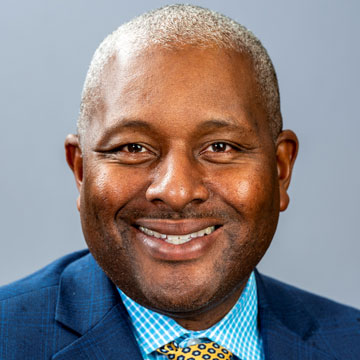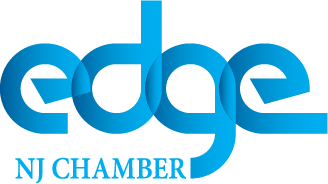The Edge for April 2025

We asked New Jersey Chamber of Commerce members to share their thoughts on the future of work – and how employers can automate certain job functions while providing their teams with the tools and upskilling they’ll need to thrive. Their insights reveal how organizations can stay competitive in an ever-evolving landscape. See article below.
 Automation allows you to focus on more complex priorities
Automation allows you to focus on more complex priorities
When approaching your team about technology, be transparent. One goal of automation is to assist employees with basic tasks so they can focus on more complex priorities. You want employees to grow and be more efficient. When getting started with automation, it’s about picking the tools that’s right for your organization. There are a lot of free tools available from software to AI to robots. Use AI to write code, for researching and summarizing. Use it for administrative toil – drafting emails and scheduling. Artificial intelligence is a paradigm shift that will automate much of what we do. Still, the future workforce will need to know how to build relationships, problem solve, and be critical thinkers. Those are the human skills that will not be replaced by automation.
– Jen Clark, Director - Advisory, Technical Enablement, EisnerAmper Advisory Group
 Technology levels the playing field
Technology levels the playing field
For my organization, automation is a necessity because there are not enough people in the workforce that do what I need them to do. Therefore, I need to automate areas of my business. We will buy robots. AI software developers will train the robots so one of my highly technologically advanced people can use three robots to do three times the work on a project. A common misconception is that automation is replacing jobs. In my case, it is not. It is about enhancing our abilities. Having my technologically advanced employees do more work makes them more valuable to the organization. I can double the size of my business without doubling the number of people working here. Unlike large organizations, smaller firms can be agile in adapting technology. It levels the playing field and allows them to do a lot more with a lot less. Businesses should invest in continuing education. At the end of the day, it is up to everybody to want to learn.
– Richard Butkus, President & Managing Partner, Control Point Associates
 No job is safe in today’s world which is frightening and exciting
No job is safe in today’s world which is frightening and exciting
Do an assessment to determine what jobs and functions should be automated. Find out where your needs are, who on your team is comfortable adapting new technologies and what departments can best leverage these technologies. There have been plenty of studies where they compare physicians diagnosing a patient and an AI tool diagnosing the same patient. The AI tools outperform the physicians, and the reason is medical knowledge doubles every 73 days so you can't possibly keep up with it. No job is safe in today’s world which is both frightening and wildly exciting. AI isn't going to replace your job. What’s going to replace you is a person that knows how to leverage AI. As a leader, your job is to help each person on your team have the right mix of human and technical skills so they can remain relevant and be successful.
– Michael Edmondson, Associate Provost for Continued Learning, NJIT
 The world is evolving. How is your organization going to stay competitive?
The world is evolving. How is your organization going to stay competitive?
The world is going to evolve and you have to think about how your organization is going to stay competitive. There are firms building homes using 3-D printers. Blacksmiths no longer exist. We are no longer putting horseshoes on horses. Maybe blacksmiths became auto mechanics because cars are the new horses. Look at Blockbuster. Netflix found a different way to provide you with the same service but more efficiently. Blockbuster went away, but the business of watching movies never went away. Relationships are still important. The future of work is encouraging as many people as possible to embrace technology as soon as possible – to identify ways they can enhance what they are already doing. That’s how they remain relevant not just to this organization but others.
– Dale Favors, Founder & Managing Partner, Adaptive Growth Leadership


 Bristol Myers Squibb announced appointment of Cari Gallman to serve as executive vice president, general counsel and chief policy officer. She succeeds Sandra "Sandy" Leung, who is retiring after a 33-year career at the company. Gallman has held leadership positions at Bristol Myers Squibb for 10 years, most recently serving as executive vice president, corporate affairs.
Bristol Myers Squibb announced appointment of Cari Gallman to serve as executive vice president, general counsel and chief policy officer. She succeeds Sandra "Sandy" Leung, who is retiring after a 33-year career at the company. Gallman has held leadership positions at Bristol Myers Squibb for 10 years, most recently serving as executive vice president, corporate affairs. Kevin R. Gibala, senior vice president and regional vice president at TD Bank, will become chair of the Inspira Health Foundation Board of Trustees after serving as vice chair in 2024, Inspira Health announced.
Kevin R. Gibala, senior vice president and regional vice president at TD Bank, will become chair of the Inspira Health Foundation Board of Trustees after serving as vice chair in 2024, Inspira Health announced.